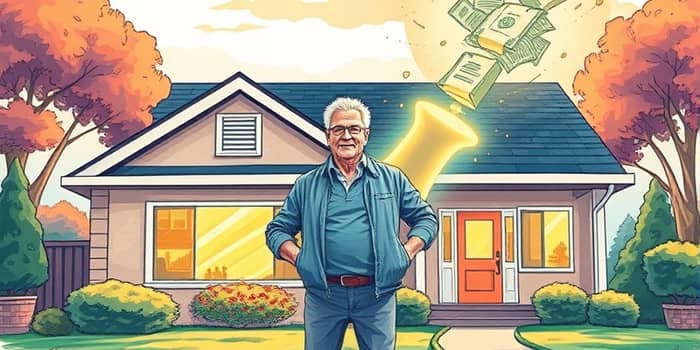
Your home holds more than shelter it embodies decades of memories and an asset you can leverage for financial stability. A reverse mortgage can offer a path to unlock that value but only if you meet specific criteria. In this article we guide you through each requirement and explain how to proceed confidently.
A reverse mortgage allows homeowners to convert part of their home equity into cash without requiring monthly mortgage payments. Unlike a traditional loan where you pay principal and interest each month reverse mortgages pay you and defer repayment until the home is sold or the borrower moves out or dies. The most prevalent type is the Home Equity Conversion Mortgage backed by the Federal Housing Administration. Private lenders offer proprietary loans often with higher limits but fewer federal protections.
Borrowers can choose how to receive proceeds as a lump sum at closing a line of credit fixed monthly payments or a combination. This flexible disbursement structure for funds allows you to tailor funds to your unique needs whether covering one time expenses or securing a steady income stream.
Before diving into details here is an overview of the main requirements for HECM and most proprietary reverse mortgages in 2025
Meeting these mandatory requirements is essential for securing a reverse mortgage.
Age Requirement
For HECM loans borrower must be at least 62 years old at closing. Proprietary lenders may approve applicants aged 55 and older subject to state or lender rules. There is no upper age limit for HECMs allowing access at any stage after 62. A non borrowing spouse under 62 can remain on title and live in the home though they cannot receive funds until they reach eligibility age.
Equity Requirements
You generally need at least 50 percent equity in your home meaning the outstanding mortgage balance and any liens must be paid down or paid off. In many cases proceeds from the reverse mortgage settle these debts at closing. HECM borrowers may access the maximum claim amount of $1,209,750 in 2025 with up to 60 percent available immediately or in the first year.
Primary Residence
The property must serve as your primary residence more than half the year. Vacation homes rentals or investment properties are not eligible. Failing to occupy the home as required can trigger loan due conditions.
For instance a 70 year old homeowner with 60 percent equity and a paid off mortgage may qualify for a sizable line of credit whereas someone with exactly 50 percent equity may receive a smaller lump sum. Discussing your scenario with a lender helps estimate actual proceeds and tailor options to your financial goals.
Lenders evaluate both the property and your capacity to meet ongoing obligations. These assessments ensure you can maintain the home and cover taxes and insurance for the life of the loan.
While there is no minimum credit score or income requirement a comprehensive financial review process determines your ability to cover property taxes homeowner’s insurance and basic maintenance. If the review indicates potential shortfalls lenders may establish a Life Expectancy Set Aside to reserve funds for future obligations.
Before finalizing a reverse mortgage you must complete a session with a HUD approved counselor. This 90-minute counseling session costs around $125 and ensures you fully understand loan mechanics obligations and alternative strategies. Counseling protects borrowers by clarifying potential risks and long term effects on heirs and estate planning.
After closing borrowers remain responsible for key ongoing obligations which if neglected can lead to default or foreclosure. Always remain current on taxes insurance and maintenance.
If the home is unoccupied for twelve consecutive months for example if you enter a long term care facility the loan becomes due. Early planning helps prevent unexpected calls for repayment.
HECM loans are federally insured and carry non recourse protection meaning borrowers or heirs never owe more than the home’s value at repayment. Proprietary products lack federal backing and carry higher risk for both borrowers and estates.
Key special conditions include non borrowing spouses may remain in the home but cannot access funds until eligible loan repayment is triggered upon death sale or permanent move out and the Life Expectancy Set Aside ensures taxes and insurance are funded for the loan duration.
A clear understanding of requirements helps avoid wasted effort and disappointment. Common pitfalls include insufficient equity falling short of the minimum threshold attempting to finance a vacation or rental property outstanding federal debts or skipping required counseling sessions.
Evaluating reverse mortgage eligibility can seem daunting but breaking down each requirement clarifies the path forward. Start by scheduling a counseling session gathering documents proving age homeownership and equity and obtaining a professional appraisal. Understanding your responsibilities and protections ensures a secure and beneficial experience.
Whether you seek extra income in retirement wish to cover medical expenses or fund home improvements meeting these requirements opens the door to a reverse mortgage. With careful planning support from professionals and a clear strategy you can transform home equity into financial flexibility and lasting peace of mind.
Always consult with qualified professionals including your lender financial advisor and HUD counselor to ensure a comprehensive understanding. Taking these steps will help preserve your home’s legacy and secure financial well being.
References













